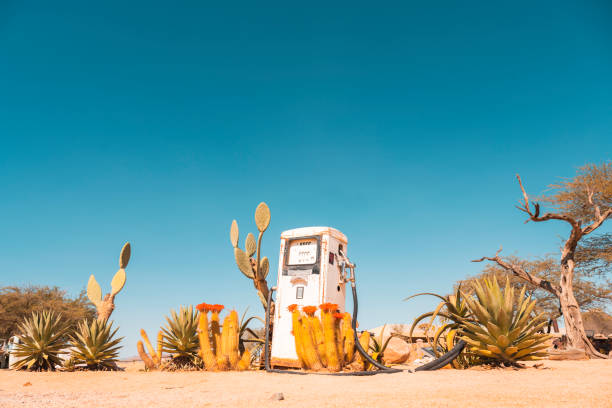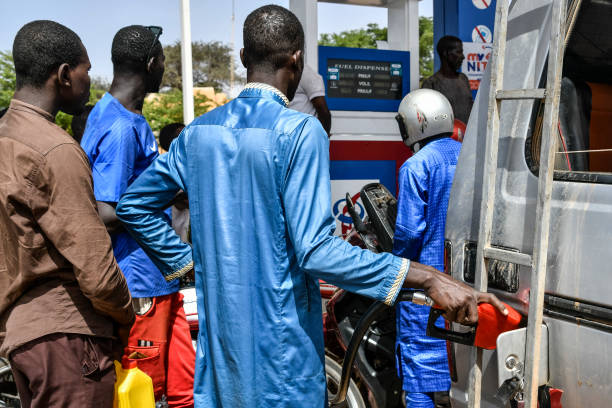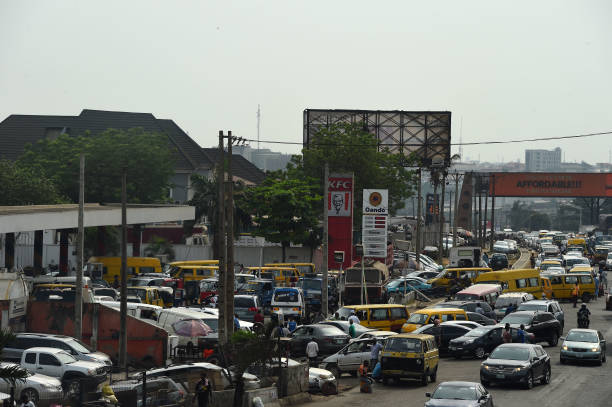Fueling Dissent: Angola’s Protests Over Rising Petrol Prices

A Nation on the Boil
In Angola, the price of fuel has always been more than just a matter of economics—it is a matter of livelihood, of survival, of the fine thread that holds daily life together. This is a country where public transportation, goods transportation, fishing, farming, and even small-scale generators rely heavily on affordable fuel. It is the invisible engine that powers both rural villages and sprawling urban centers likeLuanda. But in recent months, a sudden surge in fuel prices has pushed this fragile balance to breaking point, and Angolans have taken to the streets in protest.
The government’s decision to reduce subsidies on petroleum products is at the heart of the crisis. Angola, despite being one of Africa’s largest oil producers, imports much of its refined fuel—a bitter irony for many citizens. The official explanation is framed around fiscal responsibility and the need to free resources for other national priorities. Yet, for the market trader in Benguela or the minibus taxi driver in Huambo, the change is not abstract economics—it is immediate, painful, and potentially devastating.

SOURCE: gettyimages
The Burden of a Lifted Subsidy
Fuel subsidies in Angola have long been a political tool, a buffer between global oil price fluctuations and the fragile household budgets of ordinary citizens. They have allowed a fisherman to afford petrol for his boat and a mother to cook with kerosene without spending half her earnings. Removing them, or even reducing them significantly, is not simply a matter of adjusting numbers in a government ledger—it is pulling away the safety net.
When the government announced the fuel price increases, it was met with a storm of anger. Within days, protests erupted in multiple cities. Young people, many already unemployed or underemployed, saw the hikes as yet another barrier to their already uncertain futures. The chants on the streets were not just about petrol—they were about fairness, about a government that seemed distant from the struggles of everyday life.
Economics Meets the Street
The government argues that subsidies disproportionately benefit the wealthy—those who own cars, factories, or large businesses. They say that removing them will redirect funds toward infrastructure, education, and health. In theory, such a policy can indeed foster long-term growth. But Angola’s economic reality complicates this argument.
First, the informal economy dominates much of daily life. Most transport is still run by small-scale operators whose livelihoods depend directly on fuel costs. Second, Angola’s cost of living is already high compared to many African countries, especially in its capital. A hike in fuel prices triggers a chain reaction: transport fares rise, food prices follow, and the weight of survival grows heavier on the poorest households.
The protests, therefore, are not just against the removal of subsidies—they are against the immediate consequences of a policy that, for many, feels like an economic betrayal.
The Politics of the Pump
Fuel has always been political in Angola. The country’s economy depends heavily on oil exports, but the benefits of that wealth have not been evenly shared. This imbalance feeds into a deeper political tension—one where citizens question why a resource-rich nation still faces basic shortages in healthcare, housing, and jobs.
The ruling MPLA party finds itself in a delicate position. On one hand, it must maintain fiscal discipline to satisfy international lenders and protect the nation’s currency. On the other, it cannot ignore the growing frustration of a youthful population that sees the oil wealth flowing outward while their own lives stagnate.
Critics argue that the subsidy cuts are a symptom of a government more in tune with the demands of global financial institutions than the needs of its people. The streets of Luanda, littered with protest signs and echoing with chants, tell a story of a populace unwilling to accept austerity without accountability.
A Continental Echo
Angola’s protests are not happening in isolation. Across Africa, from Nigeria to Sudan, fuel price hikes have historically sparked unrest. This is because fuel touches every aspect of daily life—it determines the price of bread, the cost of school transport, and the affordability of electricity. In countries where a large portion of the population lives close to the poverty line, any sudden rise in fuel costs is felt instantly and painfully.

SOURCE: gettyimages
What is unfolding in Angola is part of a broader continental struggle: how to balance economic reform with social protection, and how to ensure that national resources benefit the majority rather than a select few. Angola’s leaders are not the first to face this dilemma, and they will not be the last.
Voices from the Ground
Among the protesters are taxi drivers who can no longer break even, mothers who now have to choose between buying cooking gas or school supplies, and youth who fear that every job opportunity is slipping further away.
João, a minibus driver in Luanda, summed up the frustration simply: “They say it is for the good of the country, but the country is its people. If we cannot work, eat, or move, who are they helping?” His voice reflects a sentiment that has spread far beyond the protest lines—a feeling that policy has been divorced from reality.
For Maria, a market seller, the protests are about dignity as much as economics. “We work hard every day,” she says, “but when prices go up like this, it feels like we are being pushed down again. We are not lazy. We are not asking for free things. We are asking for fairness.”
The Uncertain Road Ahead
The government has signaled that it will stand by its decision, insisting that fuel subsidies are unsustainable in the long term. Yet, it has also hinted at measures to cushion the blow, such as targeted assistance for the most vulnerable. Whether these measures will be enough to calm public anger remains uncertain.
History offers a cautionary tale: when citizens feel unheard, protests can evolve into broader political movements, challenging not just specific policies but the legitimacy of the system itself. In Angola, where memories of past unrest remain vivid, the stakes are high.
The weeks ahead will be crucial. If the government engages meaningfully with the concerns of protesters, there is a chance to build a path forward that blends fiscal responsibility with social justice. If it does not, the protests may grow, deepening divisions and fueling instability.
A Test of Trust
At its core, the crisis over fuel prices in Angola is a test of trust—trust between a government and its people, between economic theory and reality, between promises of reform and the harsh demands of survival. The streets have spoken, not just in anger but in a demand for recognition.
In the end, fuel may be the spark, but the fire burning through Angola’s cities is about something deeper: the need for governance that listens, responds, and remembers that numbers on a budget sheet are, in truth, the lives of its people.
You may also like...
When Sacred Calendars Align: What a Rare Religious Overlap Can Teach Us

As Lent, Ramadan, and the Lunar calendar converge in February 2026, this short piece explores religious tolerance, commu...
Arsenal Under Fire: Arteta Defiantly Rejects 'Bottlers' Label Amid Title Race Nerves!

Mikel Arteta vehemently denies accusations of Arsenal being "bottlers" following a stumble against Wolves, which handed ...
Sensational Transfer Buzz: Casemiro Linked with Messi or Ronaldo Reunion Post-Man Utd Exit!

The latest transfer window sees major shifts as Manchester United's Casemiro draws interest from Inter Miami and Al Nass...
WBD Deal Heats Up: Netflix Co-CEO Fights for Takeover Amid DOJ Approval Claims!

Netflix co-CEO Ted Sarandos is vigorously advocating for the company's $83 billion acquisition of Warner Bros. Discovery...
KPop Demon Hunters' Stars and Songwriters Celebrate Lunar New Year Success!

Brooks Brothers and Gold House celebrated Lunar New Year with a celebrity-filled dinner in Beverly Hills, featuring rema...
Life-Saving Breakthrough: New US-Backed HIV Injection to Reach Thousands in Zimbabwe

The United States is backing a new twice-yearly HIV prevention injection, lenacapavir (LEN), for 271,000 people in Zimba...
OpenAI's Moral Crossroads: Nearly Tipped Off Police About School Shooter Threat Months Ago
ChatGPT-maker OpenAI disclosed it had identified Jesse Van Rootselaar's account for violent activities last year, prior ...
MTN Nigeria's Market Soars: Stock Hits Record High Post $6.2B Deal

MTN Nigeria's shares surged to a record high following MTN Group's $6.2 billion acquisition of IHS Towers. This strategi...
